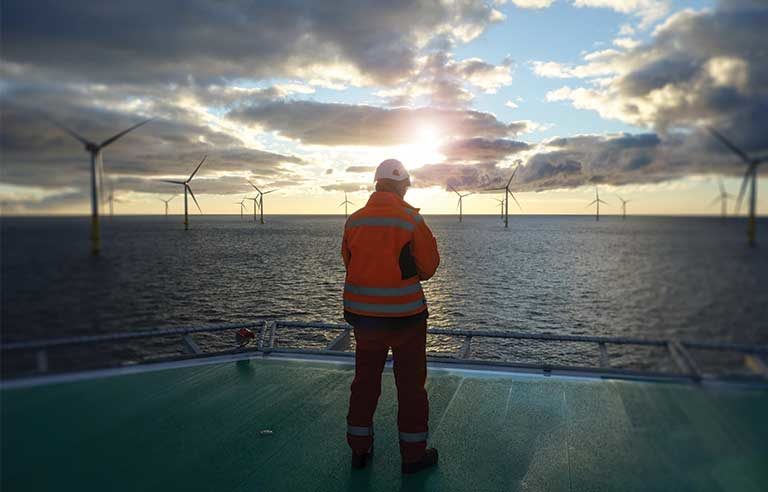DOI says it preempts OSHA on worker safety oversight for offshore renewable energy facilities

Washington — The Department of the Interior – not OSHA – will oversee workplace safety and health at offshore renewable energy facilities on the Outer Continental Shelf, according to a policy statement published in the Oct. 18 Federal Register.
An Oct. 17 press release from the Bureau of Safety and Environmental Enforcement states that DOI has leased about 1.7 million acres of the OCS for the development of offshore wind energy facilities, and its 15 active leases are in the Atlantic Ocean – from Cape Cod in Massachusetts to Cape Hatteras in North Carolina.
The Federal Register notice states that DOI-regulated entities must have a safety management system under 30 CFR Part 585, Subpart H, which preempts OSHA regulations. It adds that DOI previously has issued regulations governing inspections, as well as incident and equipment-failure reporting.
“In carrying out its responsibilities on the OCS, DOI will collaborate and consult with OSHA on the applicability and appropriateness of workplace safety and health standards for the offshore wind industry and other offshore renewable energy industries,” the notice states. “In addition, DOI will continue to collaborate with the [U.S. Coast Guard] to share relevant safety and training information and promote safety on the OCS.”
The policy does not apply to workplace safety and health for wave, tidal or ocean current energy projects whose operational requirements are within the jurisdiction of the Federal Energy Regulatory Commission. It also does not apply to offshore support vessels, which the Coast Guard oversees.
“This policy statement is a major milestone in advancing the renewable energy program on the OCS,” BSEE Director Scott Angelle said in an Oct. 17 press release. “Further, it reinforces the department’s commitment to set high standards for a safe environment for renewable energy workers offshore.”
Post a comment to this article
Safety+Health welcomes comments that promote respectful dialogue. Please stay on topic. Comments that contain personal attacks, profanity or abusive language – or those aggressively promoting products or services – will be removed. We reserve the right to determine which comments violate our comment policy. (Anonymous comments are welcome; merely skip the “name” field in the comment box. An email address is required but will not be included with your comment.)

